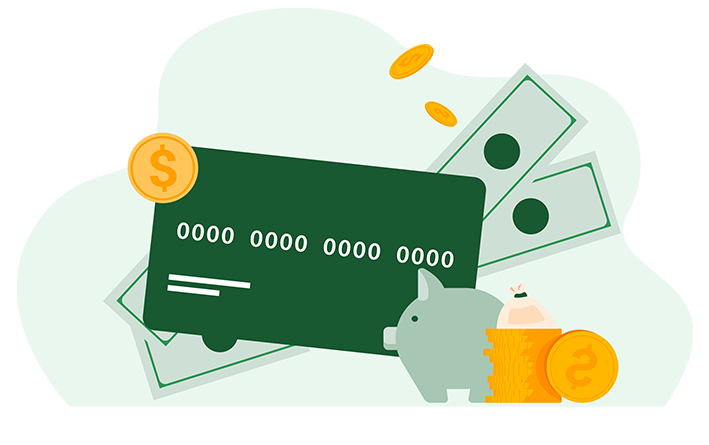Credit Cards

Credit Cards
Credit cards are financial tools that allow individuals to borrow money from a bank or financial institution to make purchases.
Here are some key points about credit cards:

How They Work
When you use a credit card, you're borrowing money from the credit card provider to make a purchase. The provider sets a credit limit, which is the maximum amount you can borrow. Each time you use the card, you're creating a debt that you'll need to repay later.

Rewards & Benefits
Many credit cards offer rewards programs, such as cash back, airline miles, or points that can be redeemed for merchandise. These rewards are often based on your spending patterns and can provide additional benefits for using the card.

Credit Limit
The credit limit is determined by the credit card provider and is based on credit history, income, and other financial information. It represents the maximum amount of money you can borrow using the card.

Fees
Credit cards may come with various fees, such as an annual fee, late payment fees, balance transfer fees, or foreign transaction fees. It's important to understand the fees associated with your credit card to manage your finances effectively.

Billing Cycle
Credit card activity is grouped into billing cycles, which are usually monthly periods. During this time, you can make purchases and incur debts. At the end of the billing cycle, the credit card issuer will provide you with a statement that lists all your transactions, the minimum payment due, and the due date.

Credit Score Impact
Your credit card activity, including payment history and credit utilization (the ratio of your credit card balances to your credit limits) can affect your credit score. Responsible credit card usage and timely payments can help improve your credit score, while late payments or high balances can have a negative impact.

Minimum Payment
The credit card statement will specify a minimum payment amount that you must pay by the due date to avoid penalties. However, paying only the minimum amount can result in interest charges and a longer time to pay off the debt.

Security Measures
Credit cards often come with security features, such as chip technology and two-factor authentication, to protect against fraud and unauthorized use. It's important to safeguard your credit card information and report any suspicious activity to your card issuer.

Interest Rates
If you don't pay your credit card balance in full by the due date, interest charges will apply to the remaining balance. Credit cards typically have higher interest rates compared to other forms of borrowing, such as personal loans.

Responsible Credit Card Use
To make the most of credit cards, it's essential to use them responsibly. This includes paying your bills on time, keeping your balances low relative to your credit limits, and avoiding unnecessary debt.
